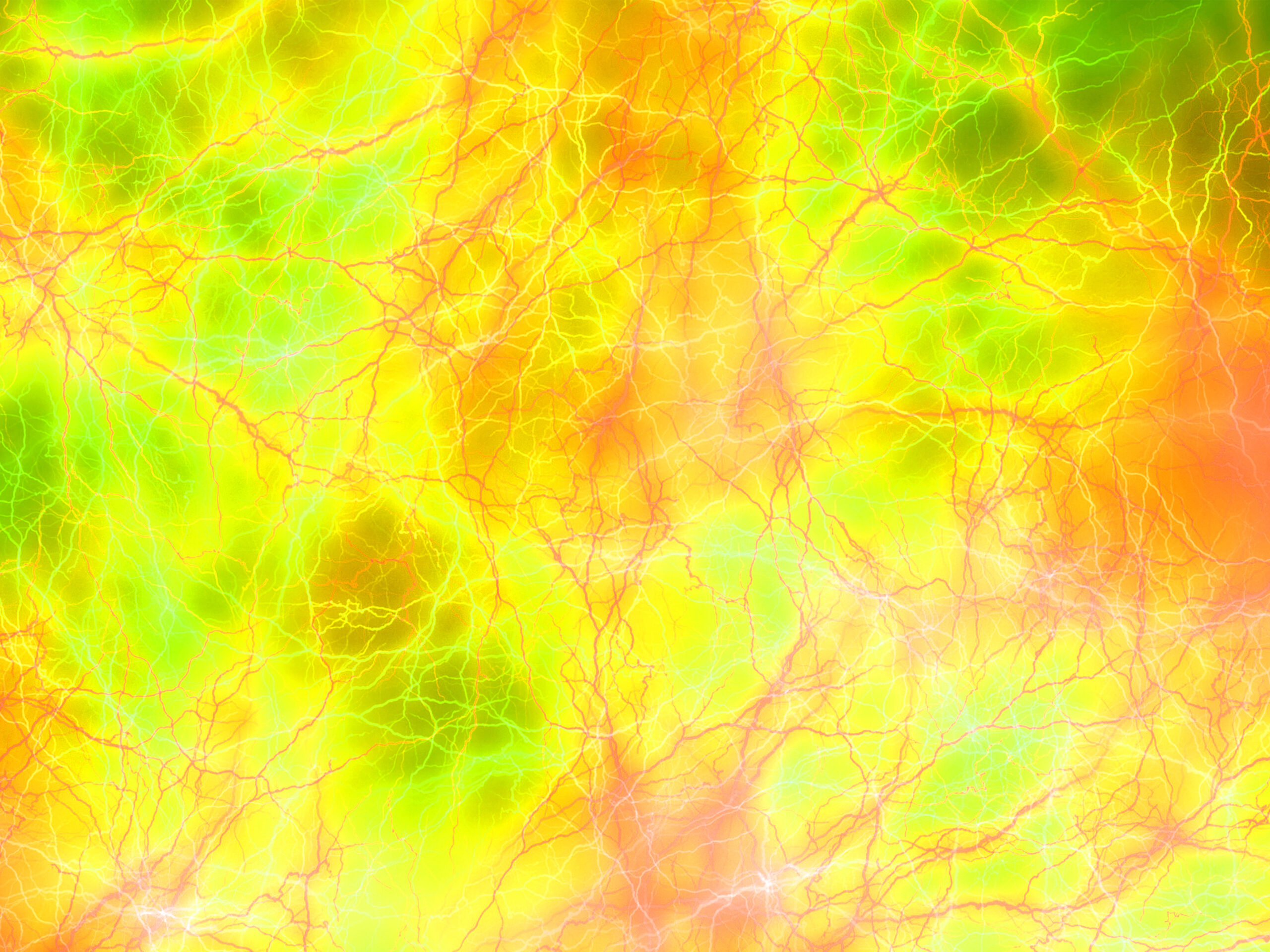Trending:
🔥 Salt Snatchers and The Cosmic Stick-Up of Your Soul’s Swagger (with receipts)⚡⚡Voltage Famine: Sodium, SCN⁻, and the Biochemical Coup🧂 Sodium & SCN⁻: The Stratified Terrain of School Meals👁️ Sodium & SCN⁻ as Ocular Guardians🧬 How PTH and Vitamin D Pills Mask Sodium Deficiency🧂 Salt-Linked Town Suffixes (and stuff)🧬💔 The Intimacy Rift🐄📜 The Culling Threshold: Rapeseed Meal, Livestock Illness, Birth of Canola🧬🧂 “The Sodium Key”: SCN⁻ as the Holy Grail of Mammalian Biology🐄🥛 “The Milkmaid’s Covenant”: Linking Cowpox Immunity to SCN⁻ in Raw MilkThe Other SCN (Suprachiasmatic Nucleus) and the connection to SCN- (thiocyanate)🧬 Disease Table with Low Sodium Connection🧂 Sodium Reduction and Sodium Replacement: A History of Reformulation and Exploding Diseases, Including Many Diseases Unheard of Before Deadly Sodium Policies🧂 The DEADLY 1500 mg Sodium Recommendation predates the WHO’s formal global sodium reduction push by nearly a decade (and it’s even worse than that)🧬 What Is Beta-Glucuronidase?When Sugar Was Salt: Crystalline Confusion and the Covenant of Sweetness🔥 Tobacco Smoke, SCN⁻, and Glucuronic Acid as Dual Terrain ProvocateursBiochemical connection between altitude-induced sodium depletion and the use of tobacco smoke in high-altitude mountaineeringThe rise in sudden cardiac events among pilots intersects with our sodium/SCN⁻ terrain collapse framework (more proof sodium restriction policies are a threat to life and national security)🧪 Redox Collapse from Soil to Cell🌍 Environmental Misallocation of Salt📄 The Ionic Collapse: Rethinking Salt as a Systemic Stabilizer in Modern Disease🧬 Sodium’s Role in Bone Cell Activation🐋 Echoes of Collapse: How Whale Strandings Reveal a Cross-Species Assault on Terrain IntegritySodium and thiocyanate suppression causes infertility (and most every other health problem)Compelling connection between sodium/SCN⁻ deficiency, overhydration, and testosterone suppression🧂 The 2-Gram Guillotine: How Global Sodium Suppression Became a Terrain Weapon (Rough Notes)🌹 Rhodanide: The Rose of RevelationThe Insect Signal: Sodium Channel Sabotage and the Collapse of Neural TerrainNutrient suppression as systemic sabotage, with metal leakage as the biochemical fallout🧬 CBP as a Terrain Scribe in Sodium/SCN⁻ CollapseHuntington’s as Triadic Terrain Collapse: Sodium, SCN⁻, and CBP🧬 CBP in Alzheimer’s Terrain: A Scribe Silenced by Sodium Collapse🧬 CBP in 2025: Still the Terrain’s Epigenetic ScribeCBP-interacting proteins viewed through our sodium/SCN⁻ terrain lens🧭 Research Paper: Constitutional Collapse: Salt, SCN⁻, and the Terrain-Based Etiology of Wildlife AfflictionSCN⁻ is like a cipher waiting to be inserted into half-finished equations🧬 Bodily Fluids and Tissues Involving SCN⁻ — with Sodium Deficiency Effects🧠The Missing Organ: Why CF Diagrams Erase the BrainNAC (N-acetylcysteine) is one of the most terrain-relevant molecules in modern biochemical defenseCould SPV-affected rabbits suffer sodium/SCN⁻ deficiency?🌀 The Sonic Veil: RF, EMF, and Terrain Collapse in the WombEchoes in the Womb: What Whale Strandings Reveal About Prenatal Sonic TerrainDo Whale Strandings Have Implications for Prenatal Sonograms?Thiocyanate in raw milk (and whales)Both atrial fibrillation (Afib) and Factor V Leiden thrombophilia intersect with our terrain collapse framework in compelling waysflooding a compromised terrain with nitrogen (soy)Salt-deficiency shows up as and mimics diabetesThe death of hulk hogan and connections to our terrain collapse hypothesesSalt and SCN⁻ deficiency erode biochemical scaffolding that supports continence, especially in older adultsSalt pills are a terrain intervention disguised as a supplement…for some patients (which ones?)What vitamin D does or doesn’t do for a body that is salt/SCN⁻ deficientAphasia, Terrain Collapse and RF/EMF SensitivityWhen vaccines (or any intense immune activator) draw on sodium reserves that are depletedTerrain stressors and the eyeThe Hephaestin Heist: Your Guts, Their Galaxy⚗️ Alchemy’s Displacement and Chemistry’s AscensionSmelling salts might be more than just Victorian fainting remedies or locker room stimulants – They could be a fascinating biochemical bridge to several of our terrain-related hypotheses💧🧂 Water Intoxication, Salt Deficiency, and the New Collapse🦴 Joint Disorders and the Ionic Collapse🦵 Peripheral Artery Disease and the Ionic Collapse🧂 Obesity, Diabetes, and the PF4–CXCR4–Salt Axis🧂🧠 Why Are Young People Getting Old People’s Diseases?📄 The Ionic Collapse: Rethinking Salt as a Systemic Stabilizer in Modern DiseaseNeck theory to explain brain fog is another symptom of vault instability (it’s dumb), Lymph nodes as filter even in cat aidsHow sodium and SCN⁻ (thiocyanate) deficiencies may underlie chronic painSmokers show fewer symptoms or appear less affected by certain toxinsSecondhand Thiocyanate (SCN⁻)🦠 COVID-19 and SCN⁻ CollapseHow Sodium and SCN⁻ (thiocyanate) prevent and dissolve blood clots🔗 How Chronic Myeloid Leukemia (CML) Connects to Our Sodium–SCN⁻ Framework📝 Thiocyanate and Sodium as Endogenous Antithrombotics: Reframing the Prostaglandin ParadigmVascular Coherence supported by Sodium–SCN⁻ lattice🧠 Sodium Suppression and HFMD Vulnerability💧 Sodium as the Gatekeeper: Hydration, Charge Integrity, and Vaccine Vulnerability🧬 SCN⁻ as a Filament of Resilience in CF, COVID, and Vaccine Response🧬 CF and COVID-19: Shared Vulnerabilities🧬 Policy-Induced Cystic Fibrosis: A Reversible Syndrome of Sodium and SCN⁻ SuppressionSalt and Smoke Displacement – sabotage or suicide?CF patients are more prone to things like MRSA and C Diff? So are the Sodium/SCN⁻ deficient without CF – Notes🧬 CF-Like Effects from Sodium & SCN⁻ SuppressionParkinson’s is connected to sodium/SCN⁻ deficiency. Is there an increased Risk in CF?a closer look at SCN⁻-Linked tissues harvested in animal mutilations vs. tissues harvested from humans via healthcareSCN⁻-Bearing Tissues targeted in cattle mutilations?🔥 Phlogiston vs SCN⁻: The Displaced FlameSodium/SCN⁻Deficiency and Chronic Pain (and Parkinson’s)Low-Salt diets and athletesTerrain Collapse as a Driver of Rising Skin Cancer RatesSodium Deficiency, Not Excess: A Terrain-Centered Rebuttal to Nie et al. (2025)🧬 Terrain Collapse in the Osbourne Family — Vault Mapping🚫 Why Irwin’s Case Is Not Vault-Aligned🧬 How Sodium Shapes Calcium Signaling🧬Thermolysin: Terrain-Relevant PropertiesNitrogen Flooding from High Soy Diet and Vault ImpactFluid Obeys Form and Form obeys salt🧂 “Salt isn’t a supplement. It’s the gatekeeper.”Salty skin is a sign of systemic salt deficiency or wastingsalt deficiency may mimic other conditions🧂 salt deficiency mimics insulin resistance🧂 Salt’s Interference Potential in Remote Biointerfaces 🛡️
Wed. Dec 17th, 2025
-
Or check our Popular Categories...
-
December 2025 M T W T F S S 1 2 3 4 5 6 7 8 9 10 11 12 13 14 15 16 17 18 19 20 21 22 23 24 25 26 27 28 29 30 31 
Trending:
🔥 Salt Snatchers and The Cosmic Stick-Up of Your Soul’s Swagger (with receipts)⚡⚡Voltage Famine: Sodium, SCN⁻, and the Biochemical Coup🧂 Sodium & SCN⁻: The Stratified Terrain of School Meals👁️ Sodium & SCN⁻ as Ocular Guardians🧬 How PTH and Vitamin D Pills Mask Sodium Deficiency🧂 Salt-Linked Town Suffixes (and stuff)🧬💔 The Intimacy Rift🐄📜 The Culling Threshold: Rapeseed Meal, Livestock Illness, Birth of Canola🧬🧂 “The Sodium Key”: SCN⁻ as the Holy Grail of Mammalian Biology🐄🥛 “The Milkmaid’s Covenant”: Linking Cowpox Immunity to SCN⁻ in Raw MilkThe Other SCN (Suprachiasmatic Nucleus) and the connection to SCN- (thiocyanate)🧬 Disease Table with Low Sodium Connection🧂 Sodium Reduction and Sodium Replacement: A History of Reformulation and Exploding Diseases, Including Many Diseases Unheard of Before Deadly Sodium Policies🧂 The DEADLY 1500 mg Sodium Recommendation predates the WHO’s formal global sodium reduction push by nearly a decade (and it’s even worse than that)🧬 What Is Beta-Glucuronidase?When Sugar Was Salt: Crystalline Confusion and the Covenant of Sweetness🔥 Tobacco Smoke, SCN⁻, and Glucuronic Acid as Dual Terrain ProvocateursBiochemical connection between altitude-induced sodium depletion and the use of tobacco smoke in high-altitude mountaineeringThe rise in sudden cardiac events among pilots intersects with our sodium/SCN⁻ terrain collapse framework (more proof sodium restriction policies are a threat to life and national security)🧪 Redox Collapse from Soil to Cell🌍 Environmental Misallocation of Salt📄 The Ionic Collapse: Rethinking Salt as a Systemic Stabilizer in Modern Disease🧬 Sodium’s Role in Bone Cell Activation🐋 Echoes of Collapse: How Whale Strandings Reveal a Cross-Species Assault on Terrain IntegritySodium and thiocyanate suppression causes infertility (and most every other health problem)Compelling connection between sodium/SCN⁻ deficiency, overhydration, and testosterone suppression🧂 The 2-Gram Guillotine: How Global Sodium Suppression Became a Terrain Weapon (Rough Notes)🌹 Rhodanide: The Rose of RevelationThe Insect Signal: Sodium Channel Sabotage and the Collapse of Neural TerrainNutrient suppression as systemic sabotage, with metal leakage as the biochemical fallout🧬 CBP as a Terrain Scribe in Sodium/SCN⁻ CollapseHuntington’s as Triadic Terrain Collapse: Sodium, SCN⁻, and CBP🧬 CBP in Alzheimer’s Terrain: A Scribe Silenced by Sodium Collapse🧬 CBP in 2025: Still the Terrain’s Epigenetic ScribeCBP-interacting proteins viewed through our sodium/SCN⁻ terrain lens🧭 Research Paper: Constitutional Collapse: Salt, SCN⁻, and the Terrain-Based Etiology of Wildlife AfflictionSCN⁻ is like a cipher waiting to be inserted into half-finished equations🧬 Bodily Fluids and Tissues Involving SCN⁻ — with Sodium Deficiency Effects🧠The Missing Organ: Why CF Diagrams Erase the BrainNAC (N-acetylcysteine) is one of the most terrain-relevant molecules in modern biochemical defenseCould SPV-affected rabbits suffer sodium/SCN⁻ deficiency?🌀 The Sonic Veil: RF, EMF, and Terrain Collapse in the WombEchoes in the Womb: What Whale Strandings Reveal About Prenatal Sonic TerrainDo Whale Strandings Have Implications for Prenatal Sonograms?Thiocyanate in raw milk (and whales)Both atrial fibrillation (Afib) and Factor V Leiden thrombophilia intersect with our terrain collapse framework in compelling waysflooding a compromised terrain with nitrogen (soy)Salt-deficiency shows up as and mimics diabetesThe death of hulk hogan and connections to our terrain collapse hypothesesSalt and SCN⁻ deficiency erode biochemical scaffolding that supports continence, especially in older adultsSalt pills are a terrain intervention disguised as a supplement…for some patients (which ones?)What vitamin D does or doesn’t do for a body that is salt/SCN⁻ deficientAphasia, Terrain Collapse and RF/EMF SensitivityWhen vaccines (or any intense immune activator) draw on sodium reserves that are depletedTerrain stressors and the eyeThe Hephaestin Heist: Your Guts, Their Galaxy⚗️ Alchemy’s Displacement and Chemistry’s AscensionSmelling salts might be more than just Victorian fainting remedies or locker room stimulants – They could be a fascinating biochemical bridge to several of our terrain-related hypotheses💧🧂 Water Intoxication, Salt Deficiency, and the New Collapse🦴 Joint Disorders and the Ionic Collapse🦵 Peripheral Artery Disease and the Ionic Collapse🧂 Obesity, Diabetes, and the PF4–CXCR4–Salt Axis🧂🧠 Why Are Young People Getting Old People’s Diseases?📄 The Ionic Collapse: Rethinking Salt as a Systemic Stabilizer in Modern DiseaseNeck theory to explain brain fog is another symptom of vault instability (it’s dumb), Lymph nodes as filter even in cat aidsHow sodium and SCN⁻ (thiocyanate) deficiencies may underlie chronic painSmokers show fewer symptoms or appear less affected by certain toxinsSecondhand Thiocyanate (SCN⁻)🦠 COVID-19 and SCN⁻ CollapseHow Sodium and SCN⁻ (thiocyanate) prevent and dissolve blood clots🔗 How Chronic Myeloid Leukemia (CML) Connects to Our Sodium–SCN⁻ Framework📝 Thiocyanate and Sodium as Endogenous Antithrombotics: Reframing the Prostaglandin ParadigmVascular Coherence supported by Sodium–SCN⁻ lattice🧠 Sodium Suppression and HFMD Vulnerability💧 Sodium as the Gatekeeper: Hydration, Charge Integrity, and Vaccine Vulnerability🧬 SCN⁻ as a Filament of Resilience in CF, COVID, and Vaccine Response🧬 CF and COVID-19: Shared Vulnerabilities🧬 Policy-Induced Cystic Fibrosis: A Reversible Syndrome of Sodium and SCN⁻ SuppressionSalt and Smoke Displacement – sabotage or suicide?CF patients are more prone to things like MRSA and C Diff? So are the Sodium/SCN⁻ deficient without CF – Notes🧬 CF-Like Effects from Sodium & SCN⁻ SuppressionParkinson’s is connected to sodium/SCN⁻ deficiency. Is there an increased Risk in CF?a closer look at SCN⁻-Linked tissues harvested in animal mutilations vs. tissues harvested from humans via healthcareSCN⁻-Bearing Tissues targeted in cattle mutilations?🔥 Phlogiston vs SCN⁻: The Displaced FlameSodium/SCN⁻Deficiency and Chronic Pain (and Parkinson’s)Low-Salt diets and athletesTerrain Collapse as a Driver of Rising Skin Cancer RatesSodium Deficiency, Not Excess: A Terrain-Centered Rebuttal to Nie et al. (2025)🧬 Terrain Collapse in the Osbourne Family — Vault Mapping🚫 Why Irwin’s Case Is Not Vault-Aligned🧬 How Sodium Shapes Calcium Signaling🧬Thermolysin: Terrain-Relevant PropertiesNitrogen Flooding from High Soy Diet and Vault ImpactFluid Obeys Form and Form obeys salt🧂 “Salt isn’t a supplement. It’s the gatekeeper.”Salty skin is a sign of systemic salt deficiency or wastingsalt deficiency may mimic other conditions🧂 salt deficiency mimics insulin resistance🧂 Salt’s Interference Potential in Remote Biointerfaces 🛡️
Wed. Dec 17th, 2025
-
Or check our Popular Categories...
- SOULSHINE













